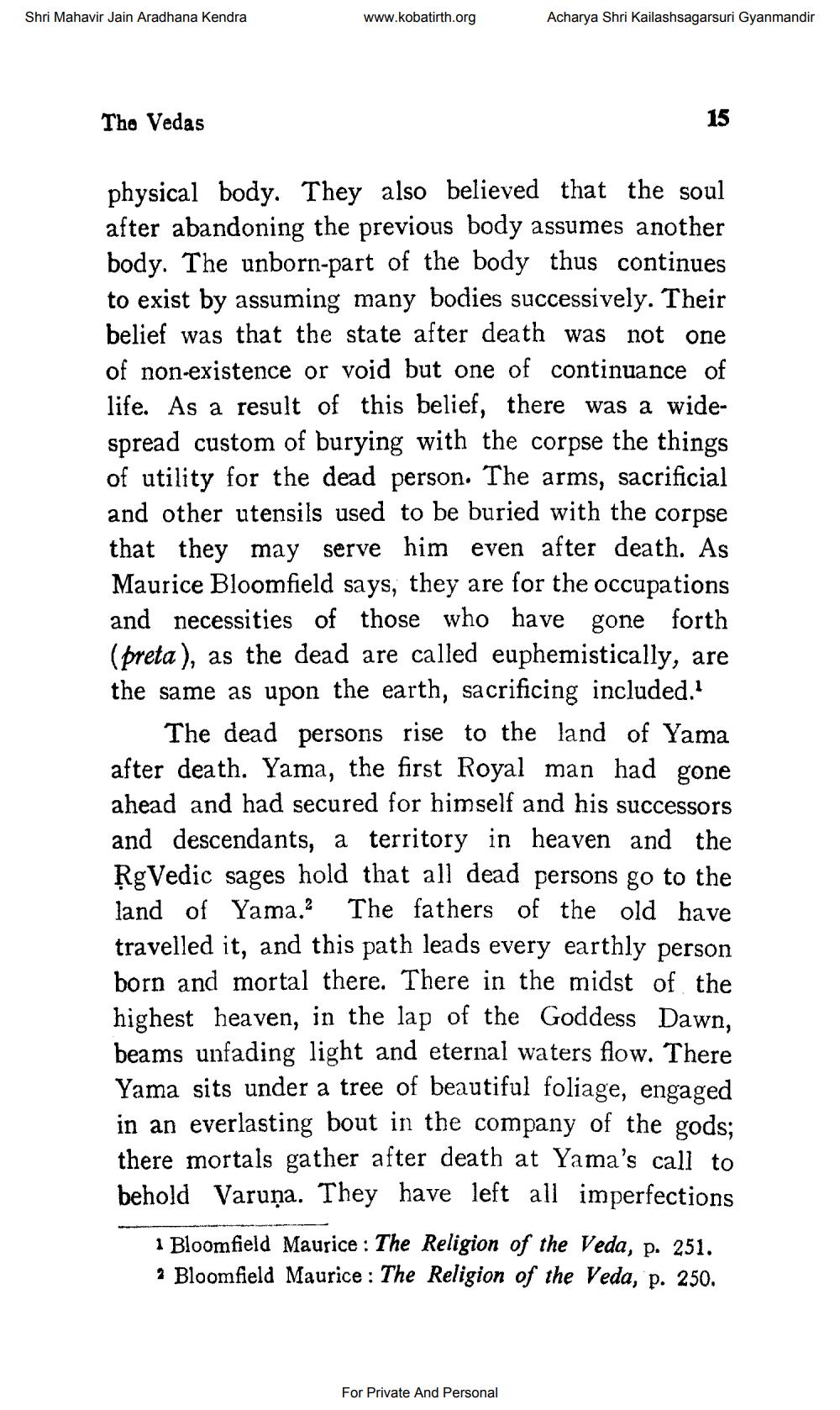________________
Shri Mahavir Jain Aradhana Kendra
www.kobatirth.org
Acharya Shri Kailashsagarsuri Gyanmandir
The Vedas
15
physical body. They also believed that the soul after abandoning the previous body assumes another body. The unborn-part of the body thus continues to exist by assuming many bodies successively. Their belief was that the state after death was not one of non-existence or void but one of continuance of life. As a result of this belief, there was a widespread custom of burying with the corpse the things of utility for the dead person. The arms, sacrificial and other utensils used to be buried with the corpse that they may serve him even after death. As Maurice Bloomfield says, they are for the occupations and necessities of those who have gone forth (preta), as the dead are called euphemistically, are the same as upon the earth, sacrificing included.'
The dead persons rise to the land of Yama after death. Yama, the first Royal man had gone ahead and had secured for himself and his successors and descendants, a territory in heaven and the RgVedic sages hold that all dead persons go to the land of Yama.? The fathers of the old have travelled it, and this path leads every earthly person born and mortal there. There in the midst of the highest heaven, in the lap of the Goddess Dawn. beams unfading light and eternal waters flow. There Yama sits under a tree of beautiful foliage, engaged in an everlasting bout in the company of the gods: there mortals gather after death at Yama's call to behold Varuņa. They have left all imperfections
1 Bloomfield Maurice : The Religion of the Veda, p. 251. 9 Bloomfield Maurice : The Religion of the Veda, p. 250.
For Private And Personal




